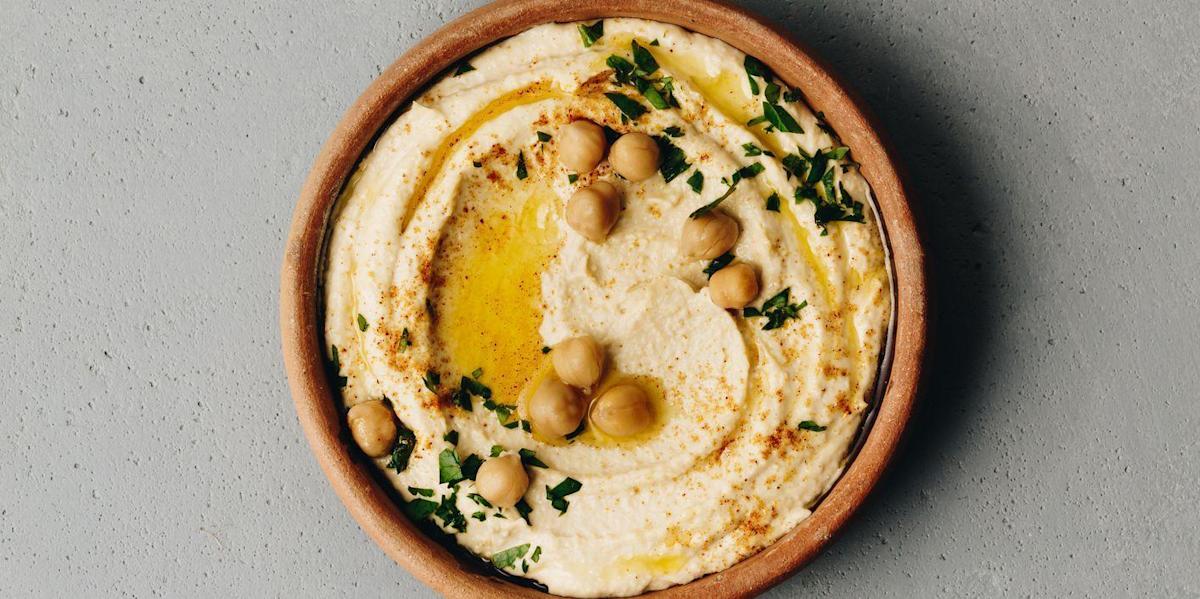Is Hummus Good for You? Dietitians Explain the Dip’s Health Benefits

Whether you need lunch in a pinch or a snack to tide you over before dinner, hummus is one of those savory treats that never fails to please. Made from mashed chickpeas and tahini, plus extras like olive oil, lemon juice, and garlic, the dip is just as delicious as it is simple. But is hummus healthy?
“Hummus is a delicious, nutrient-dense, versatile spread, condiment, or dip,” explains Pam Fullenweider, R.D., M.S., a registered dietitian who specializes in the Mediterranean diet. But not all hummus is made equally. So, should you keep hummus in your rotation? Here’s what dietitians think.
Is hummus good for you?
In short, yes, the hummus is good for you. “Hummus is packed with a variety of vital nutrients,” explains Jerlyn Jones, R.D.N., L.D., a registered dietitian based in Atlanta, offering protein, fiber, and unsaturated fats.
Chickpeas (also known as garbanzo beans) are the main ingredient in hummus, and they’re high in protein and fiber, which leave you feeling satisfied after you eat, Fullenweider says. Additionally, they’re a great source of iron, magnesium, and B vitamins, Jones notes.
Tahini, a sesame seed paste that’s the second-most important ingredient in the dip, is similarly healthy, offering mono- and poly-unsaturated fats, minerals, and even more protein and fiber, Jones continues. Olive oil and tahini are both rich in antioxidants, helping fight inflammation, Fullenweider adds. And “the winning combination” of healthy fat, protein, and fiber can keep blood sugar in check and boost gut health, she says.
“Hummus is an excellent choice for people with dietary intolerances or allergies because it is naturally gluten-, nut-, and dairy-free,” Fullenweider explains. It’s an especially helpful source of protein for vegans and vegetarians, too.
Is homemade hummus healthier?
Store-bought hummus can be just as healthy as its homemade counterpart, the experts say, and very convenient—but you should read the label carefully. “Buy hummus with as few ingredients as possible, mostly whole foods,” Jones recommends. To do that, just look for ingredients with names you recognize on the label.
Fullenweider advises avoiding pre-made hummus crafted with preservatives like potassium sorbate and sodium benzoate—and sticking to options prepared only with olive or canola oil, too. Other oils aren’t as beneficial, according to the experts, so you’re better off skipping them.
Added sugars, including corn syrup, cane sugar, and honey, may also sneak their way into store-bought hummus, so seek out options without these ingredients. Pay attention to the sodium content, too: It’s easy to accidentally pick an option with a large amount of salt, Jones says. (This is a good note when you’re making hummus at home, too.)
How can you add hummus to your diet?
Yes, hummus is delicious as a dip, especially when paired with celery, carrots, cucumbers, pickles, radishes, and other veggies. (They’re an improvement on salty pita chips.) But don’t be afraid to get a little creative: Jones recommends treating it as a condiment, using it in sandwiches and wraps to replace other toppings like mayo or ketchup.
Plus, it’s super-easy to whip up at home. “If you haven’t tried making homemade hummus, give it a try,” Fullenweider says. “It’s so easy and delicious, you may never buy store-bought again.”
Making your own hummus also opens up a world of possibilities, Jones explains. Add your favorite flavors, including sriracha, olives, sun-dried tomatoes, and mushrooms, in the mix or on top. Use other kinds of canned beans instead of chickpeas. Or try a guacamole hummus by adding jalapeño and substituting avocado for tahini and lime for lemon.
“You can feel good about eating hummus,” Jones says.
The post Is Hummus Good for You? Dietitians Explain the Dip’s Health Benefits appeared first on Prevention

